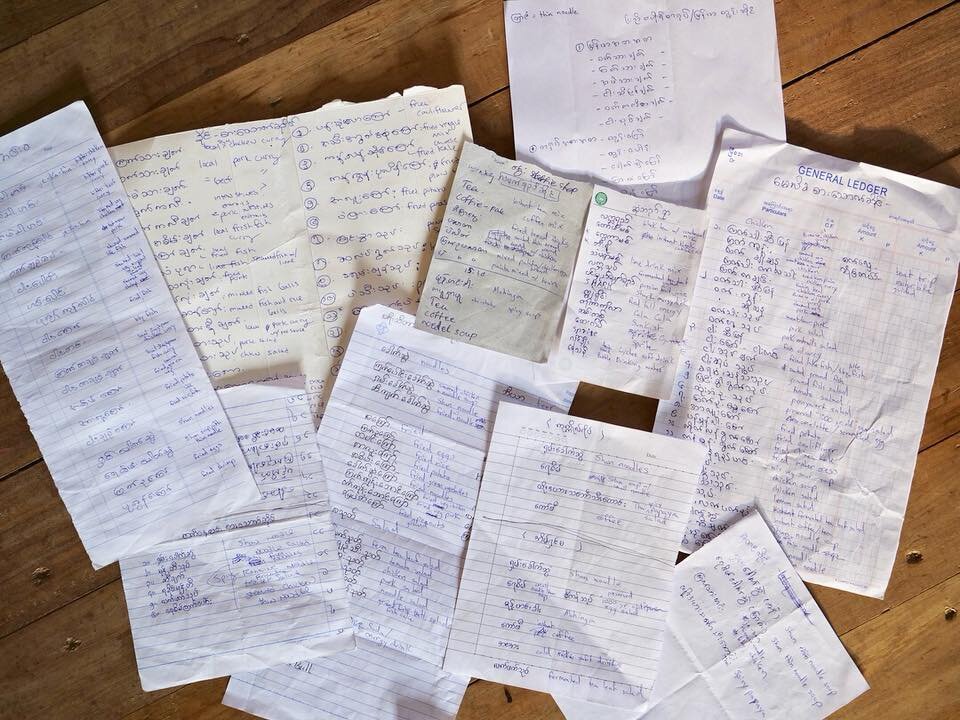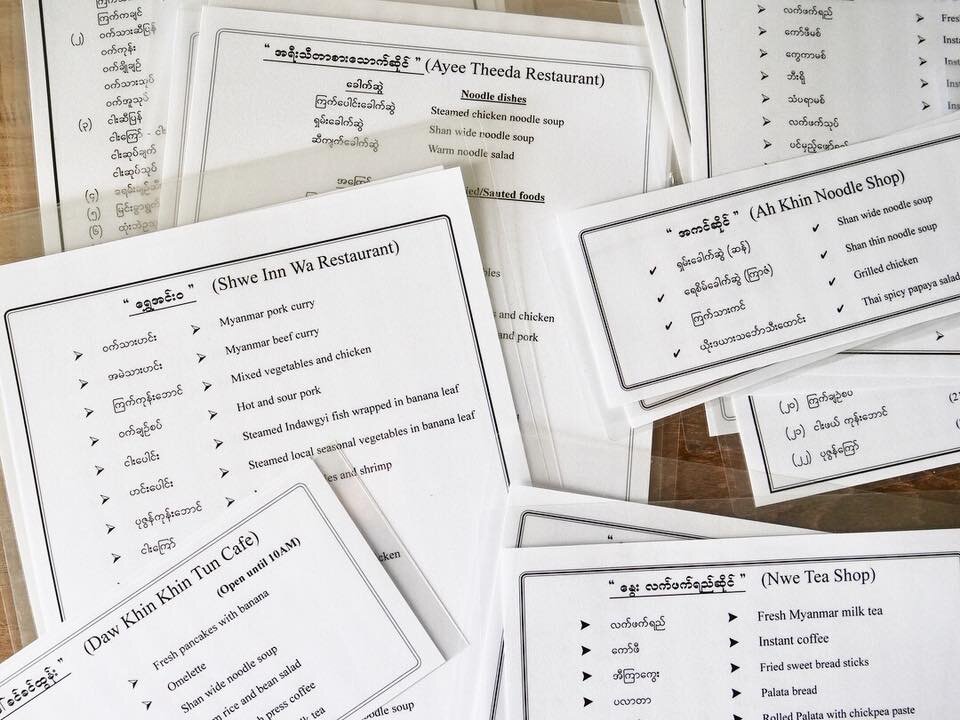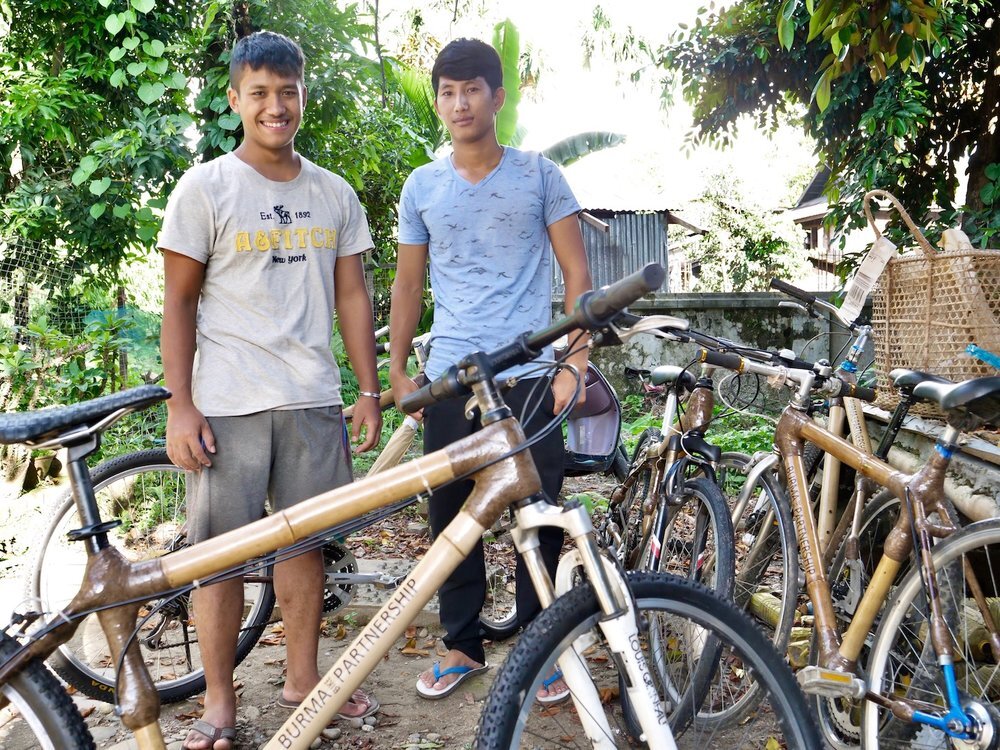
Face of Indawgyi (ဗမာစကား) is focused on four main pillars: cultural preservation, environmental conservation, educational opportunities, and local business development. With outside funding and the revenue from social impact tourism, we support projects in each category guided by Sustainable Development Goals 8 & 9 while also creating a space for new and even better ideas to come together.
CULTURAL PRESERVATION

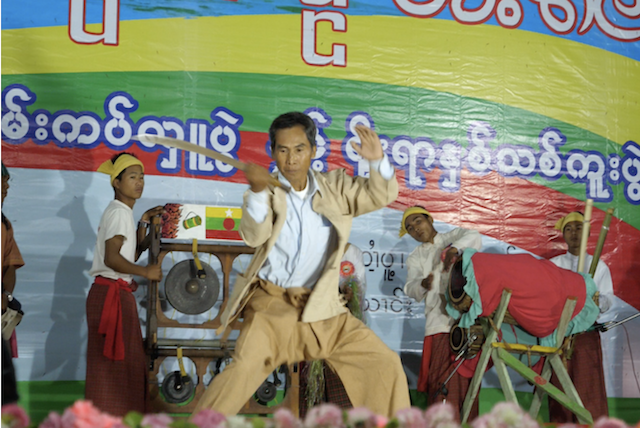
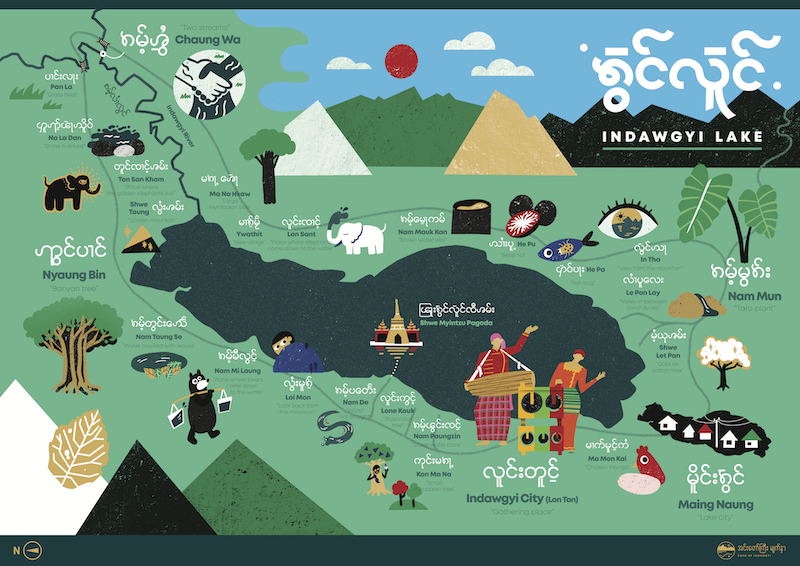
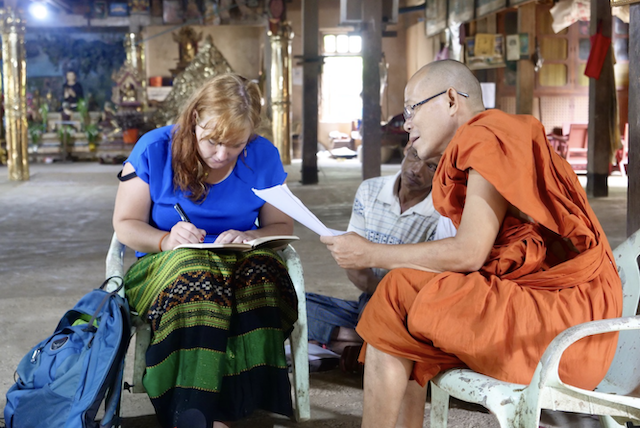

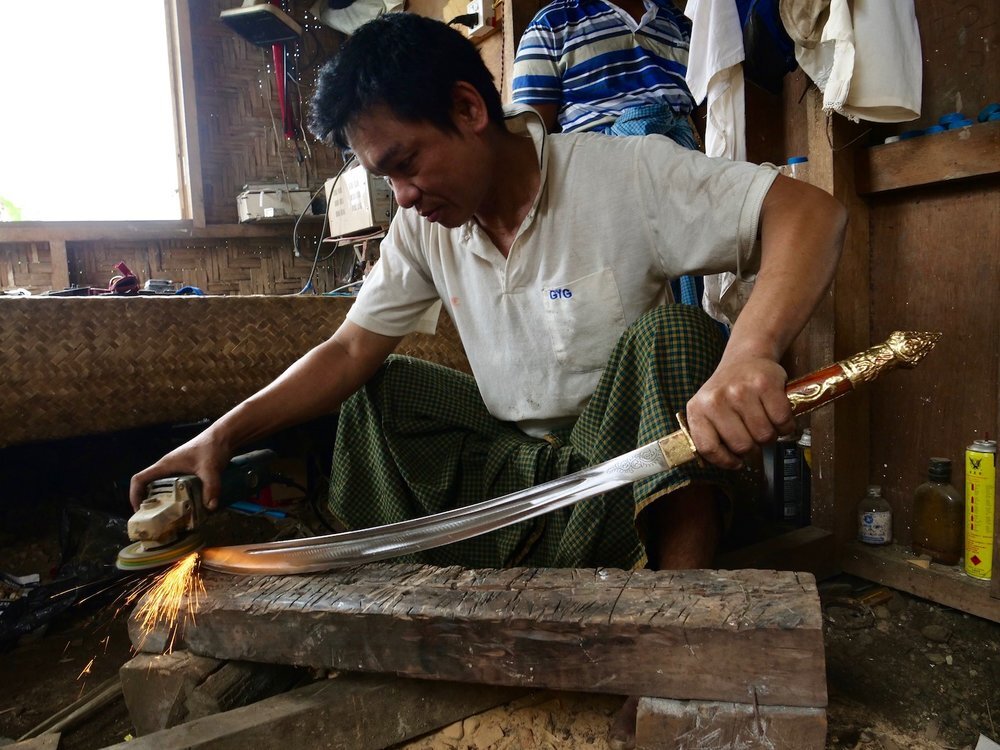
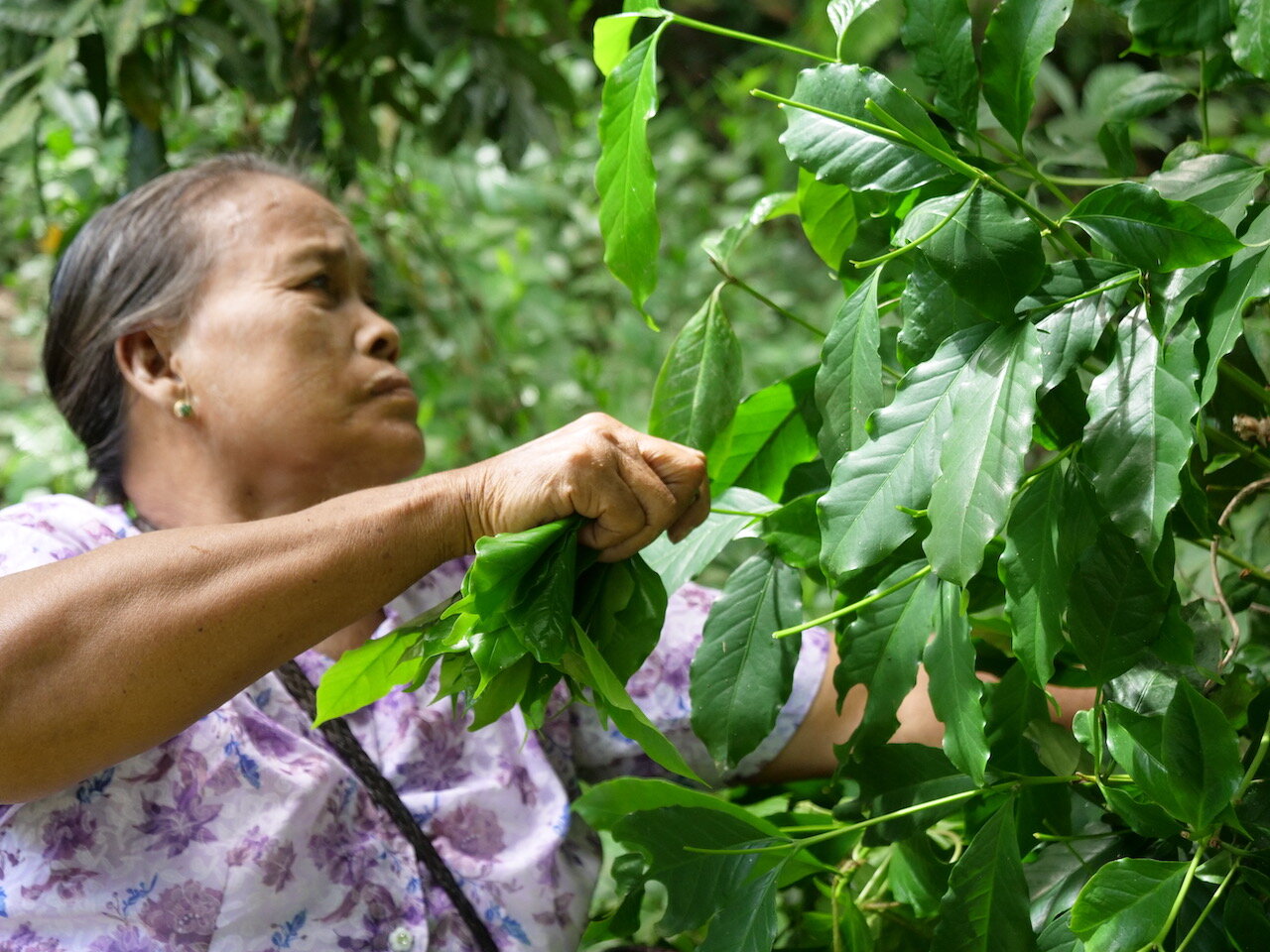
The lake is home to three predominant ethnic groups: Shan-ni, Kachin and Burmese. There are thirteen villages directly on the water and thirty-seven within the valley. Each of these groups is unique and features different languages, cultures and religions. Our research here includes the following:
Strong focus on Shan-ni language and culture preservation. We have done extensive research and interviews around the lake and are now moving into video archiving.
Created the first Shan-ni language map of Indawgyi.
This will also serve as an educational tool in the blossoming Shan-ni language program implemented throughout southern Kachin State.
Hosted a linguist who completed the first grammatical mapping of the Shan-ni language in May 2019. She is currently pursuing her Ph.D. in Singapore to further study Shan-ni and develop the first Shan-ni/Burmese phone app as a teaching tool.
In October 2020, we facilitated a big milestone agreement between Google Arts & Culture and the Mohnyin Shan-ni Literature & Culture Association. This will be a community effort to create an expansive digital collection of northern Myanmar’s Shan-ni artifacts and heritage and, for the first time, share it with a global audience.
Creating a short history of the villages at the lake.
So far: Indawgyi City, Ma Mon Kaing, Le Pon Lay. These are all published on our blog.
Working with local Shan-ni and Kachin artisans to document their craft and put them on the Indawgyi map.
Indawgyi is the only place on earth that makes coffee leaf salad. Published in Barista Magazine’s January 2021 issue.
ENVIRONMENT



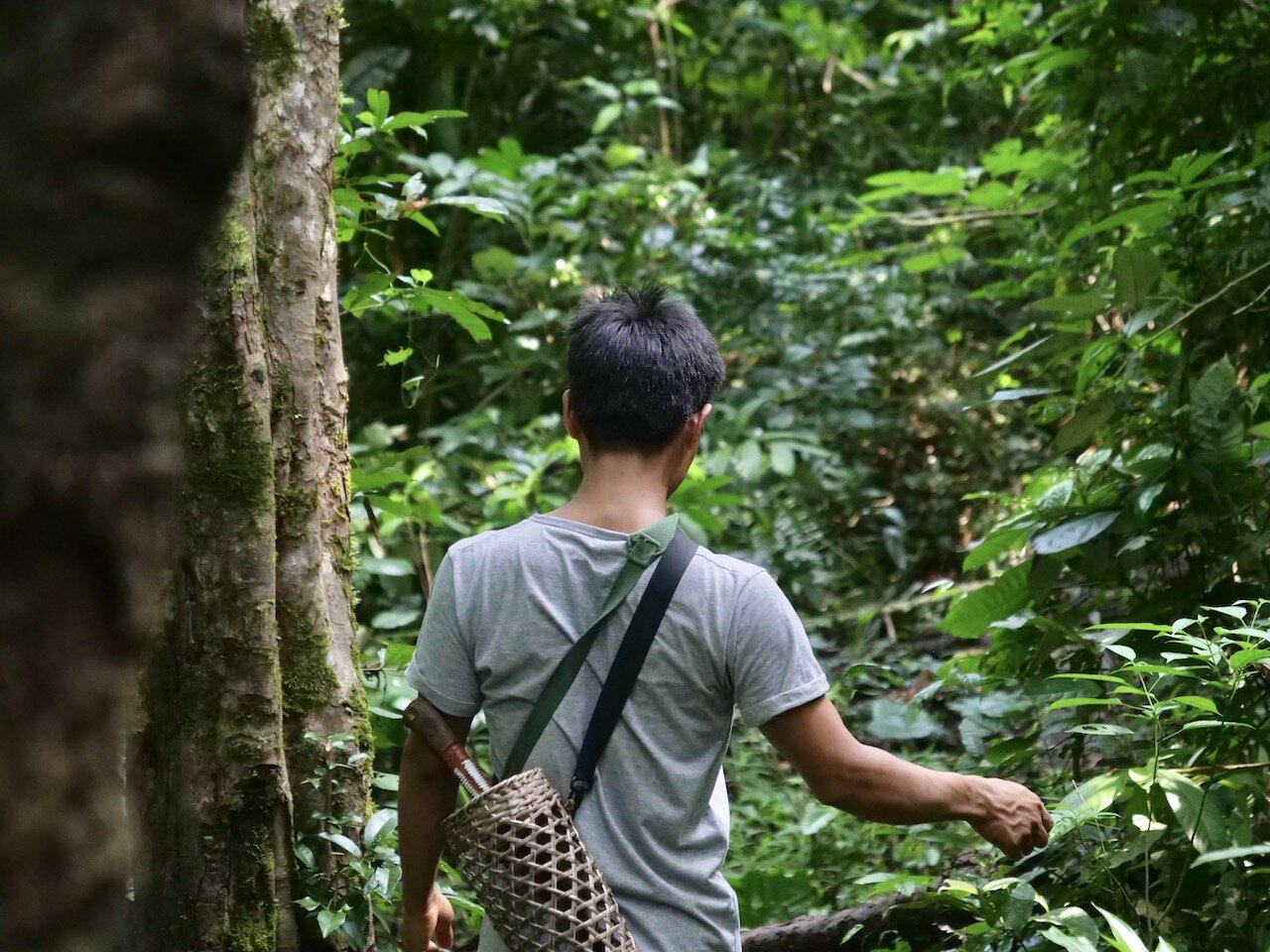

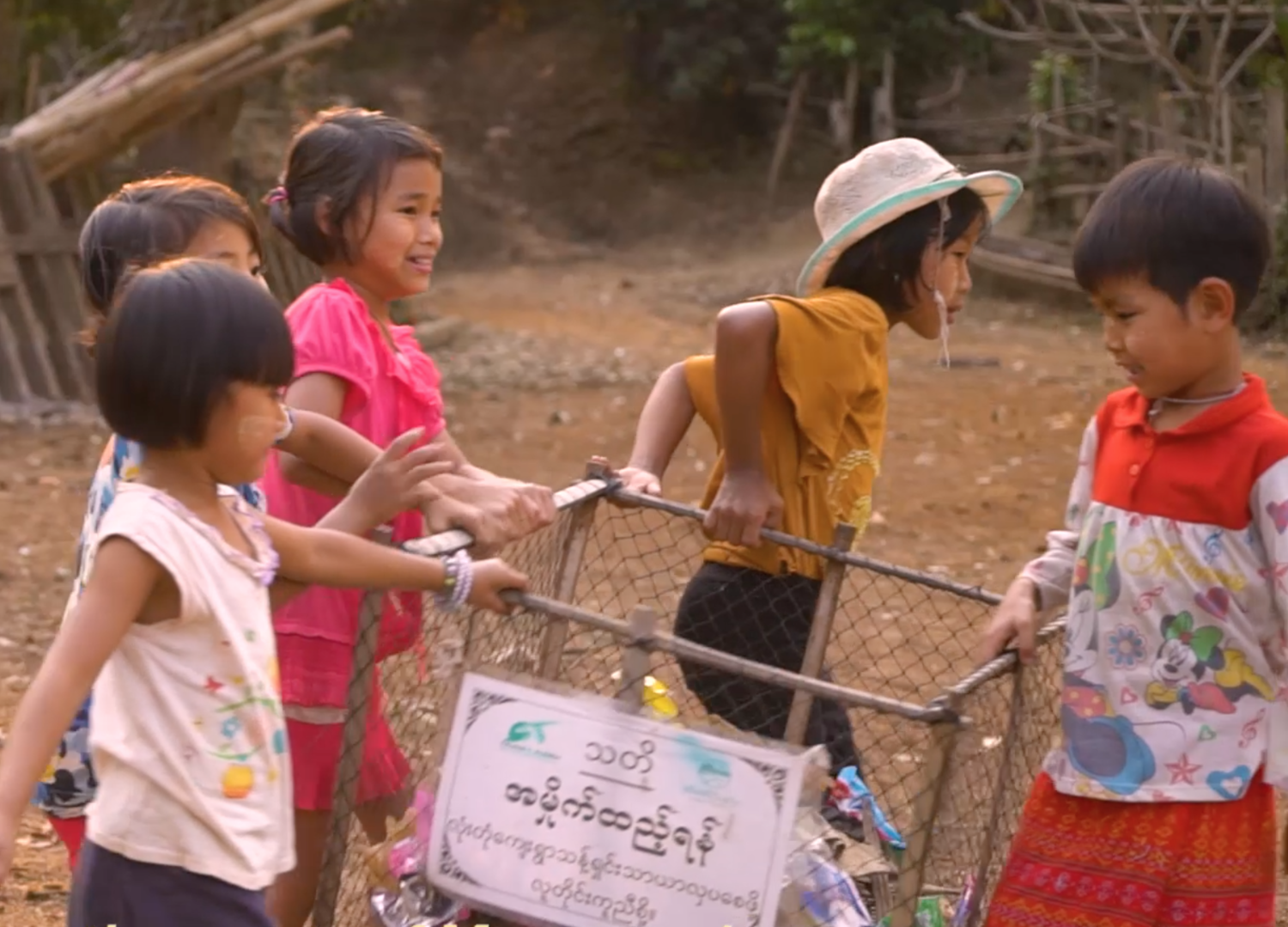
Our social approach to environmental conservation is focused on implementing and bolstering basic infrastructure around the lake. Past and current projects include the following:
Provided locally-inspired & designed sustainably made local bamboo trashcans to four different villages and the three main tourist sites to help pull trash from the lake.
Sponsored for Lon Sant, Ywathit, Manahkaw, Lon Ton villages and Shwe Myintzu Pagoda, Bamboo Buddha, and natural hot springs tourist sites.
Worked with local community members to design informative signs that would encourage using these trash cans. Each community designs their own sign – the one pictured left reads “Trash isn’t food for cows…please put your trash in the trash can.”
Placed bamboo trashcans along one of the main hiking trails in Indawgyi’s southern mountains. From the mountain trails to Indawgyi’s shores, we will work with communities to clear waste from the natural environment and improve use of official village dump sites.
Partnered with Palu Myanmar to replace single-use plastic straws around Indawgyi with reusable, Myanmar-made bamboo straws.
Started monthly plastic awareness campaigns. One successful campaign was at Shwe Myintzu Pagoda, and we plan to time them up with trash cans deliveries to new villages. Currently on hold due to Covid restrictions.
EDUCATION

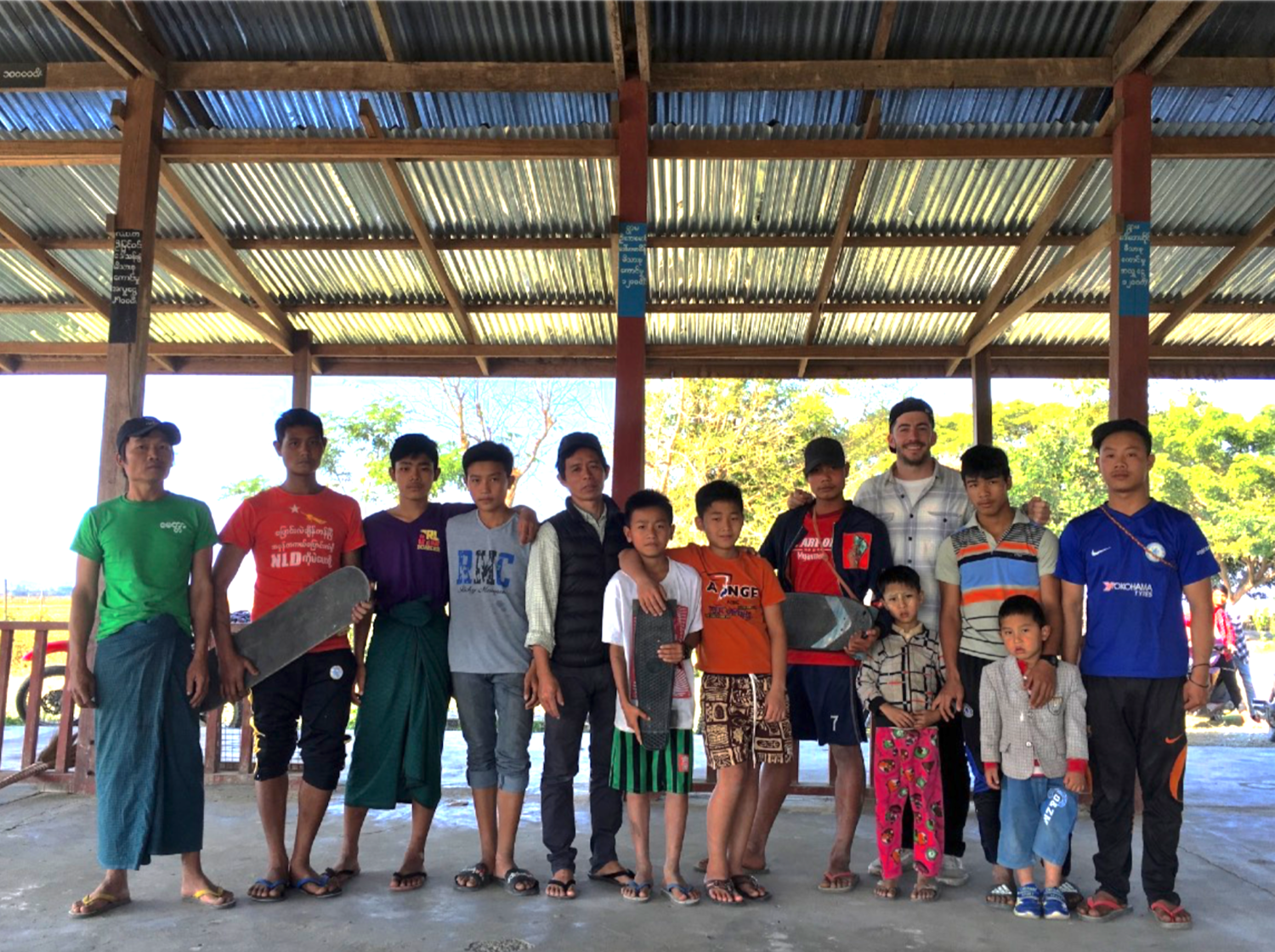

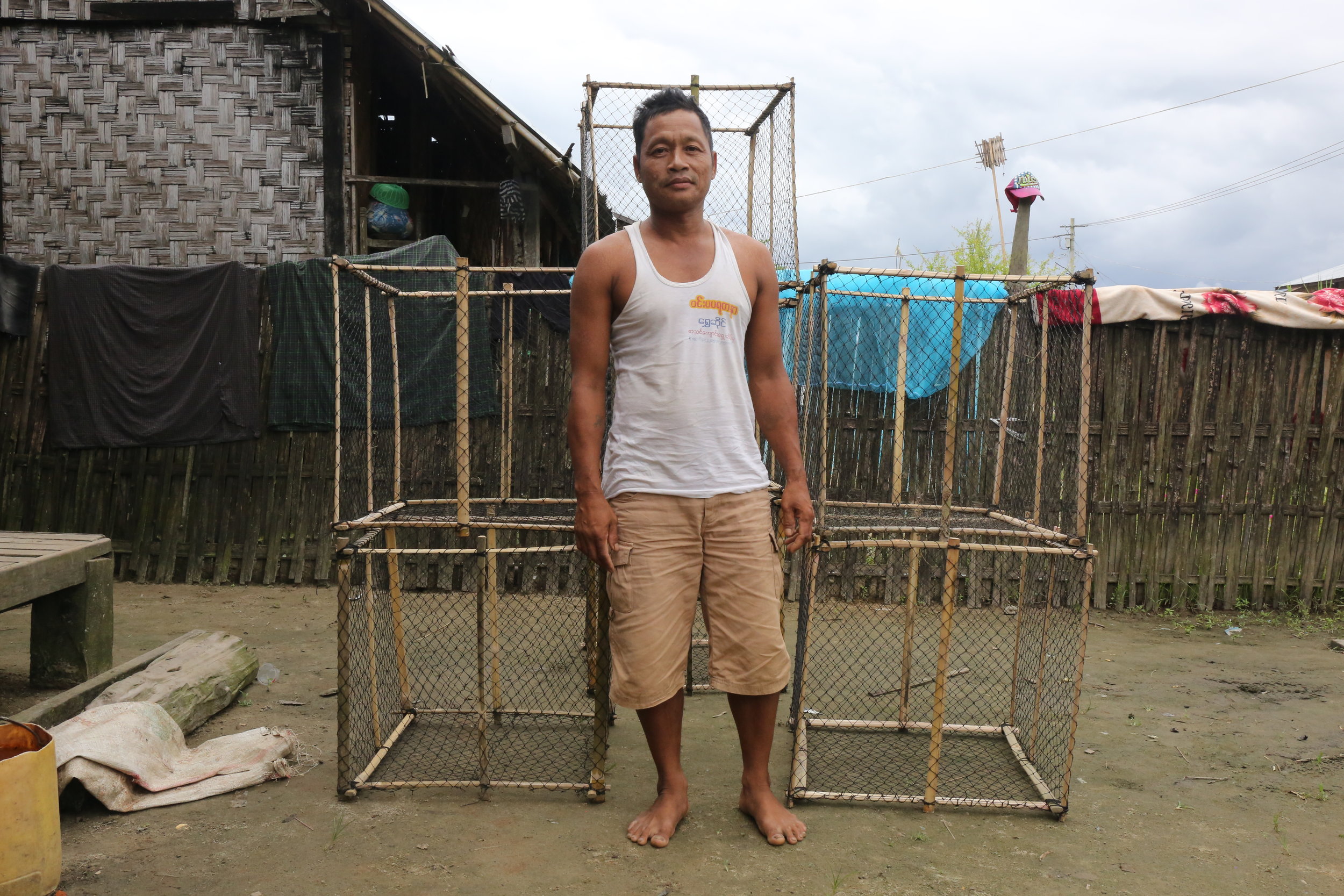
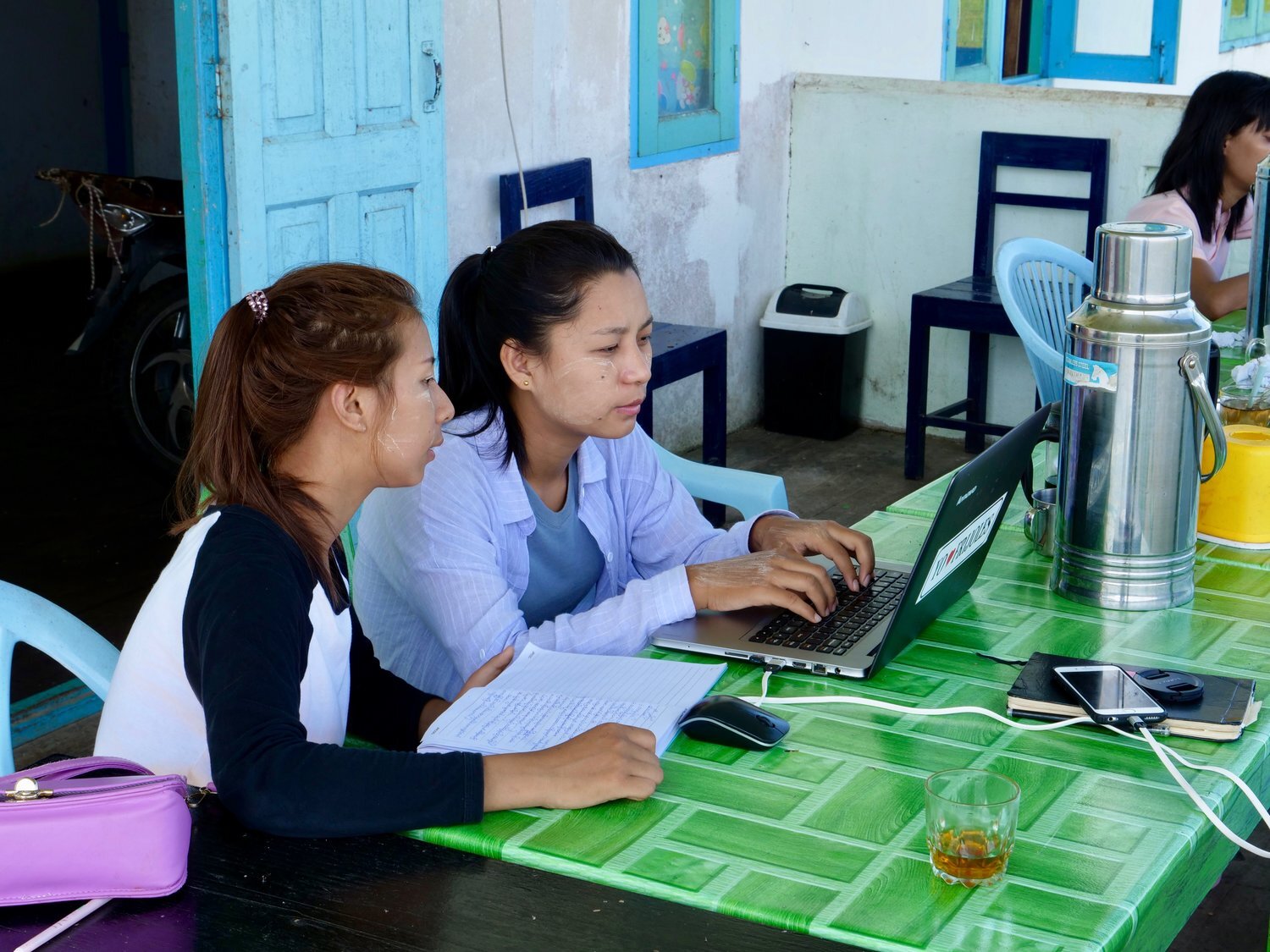

Education is the key to success in creating environmental awareness and new opportunities. With the majority of work being seasonal fishing and rice farming, there is a lack of upward mobility for the lake’s youth. Our education projects aim to build on local knowledge and diversify livelihoods long-term. Current work includes the following:
Provided free skateboards and gear for the first weekly skateboard classes in January 2020. These classes gauge local interest as we continue plans to build Indawgyi’s first community skatepark in collaboration with Yangon’s Myanmar Skate Association and Pushing Myanmar and Germany’s Make Life Skate Life.
Currently piloting a coffee program with 17 farmers in 10 villages who already grow coffee plants but have no market connection. Now with a buyer already confirmed in Yangon, we’ve started basic training for current farmers on how to hand-process coffee cherries. We plan to better formalize this coffee cooperation by December 2024.
Developing computer skills courses for students at the lake through partnerships with local initiatives including the Shan-ni Youth Network.
Partnership with Pinnya Tagar Academy to assist Face of Indawgyi projects including staffing, with Pinnya-Tagar graduate Sut Mai Aung being an employee from 2017 to the present in 2023-2024, and hosting two interns from October to December 2018.
Piloted our first English language course in Indawgyi City from April-August 2019.
Partnered with EDNA Myanmar to bring the first entrepreneurial training to small business owners from around Indawgyi Lake.
ECONOMIC DEVELOPMENT

Partnered with EDNA Myanmar to host the first “Entrepreneurial Education and Enterprise Support” training course focused on women and youth from Indawgyi (video to left).
Despite the Covid lockdown, we remotely organized 18 participants for the first class — 9 female and 9 male students.
The 1st place award winner, Daw Nwet Aye from Mainaung Village, and the 2nd place winner, Ko Aung Aung from Nyaungbin Village, came from the Indawgyi program and showed two of the most substantial enterprise developments from all the programs countrywide.
Huge congratulations to the two winners and all participants from this year’s Indawgyi program. Your innovation and leadership are already an inspiration for a new generation of Indawgyi entrepreneurs.
Many of our activities here promote and facilitate sustainable tourism around the lake. For this pillar, projects include the following:
Creating bilingual restaurant menus in English and Burmese.
Already finished Indawgyi City (formerly Lon Ton) and have done select restaurants from Mohynin to Nyaung Bin.
Maps of different villages in Burmese and English within six months on an app for the whole lake.
Indawgyi City now available!
Created new tourism opportunities that never existed here before and support local culture: freshwater shrimping, Shan-ni cooking class, observing local rice alcohol production.
Looking into meditation and discussing with Indawgyi City Monastery and want to do something at Ma Mon Kaing Monastery as it is very close to Lon Ton.
Teamed up with Burma Bike Partnership. Myu Htoi Awng Kareng and Tu Seng are from the nearby capital city of Myitkyina and build strong and sustainable bikes using bamboo frames and recycled bike parts. Local initiative is a priority, and their bikes are already helping to better ecotourism practices at Indawgyi.
Worked with villages to create signs from the water indicating which village you are entering.
In three languages: Burmese, Shan-ni and English. More Shan-ni language visibility increases its presence it daily life and encourages learning.
Sign for Ma Mon Kaing is being built now.
Discussing now with the other five villages directly on the south end of the lake. Next one is Le Pon Lay.
Working with local artisans to create crafts ranging from custom fabrics and longyis (sarongs), bamboo mats, pottery and so on. We are in initial stages and will be organizing this through the summer and later connect them to an online marketplace so they can sell both locally and to our bigger audience.
Created joint venture tourism platform to help boost visibility of Indawgyi Lake and Kachin State which has already succeeded in drawing more tourists to the region.


